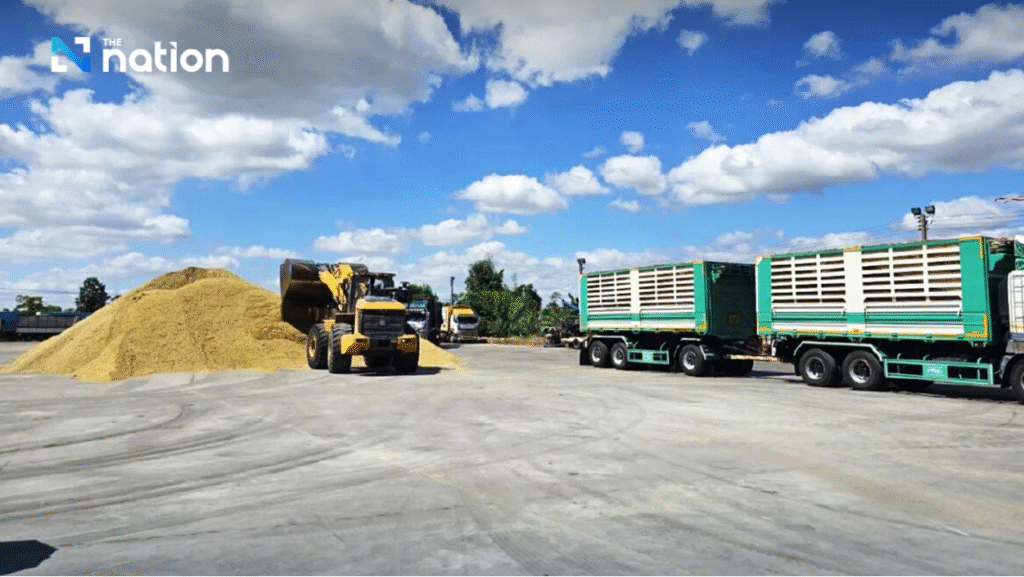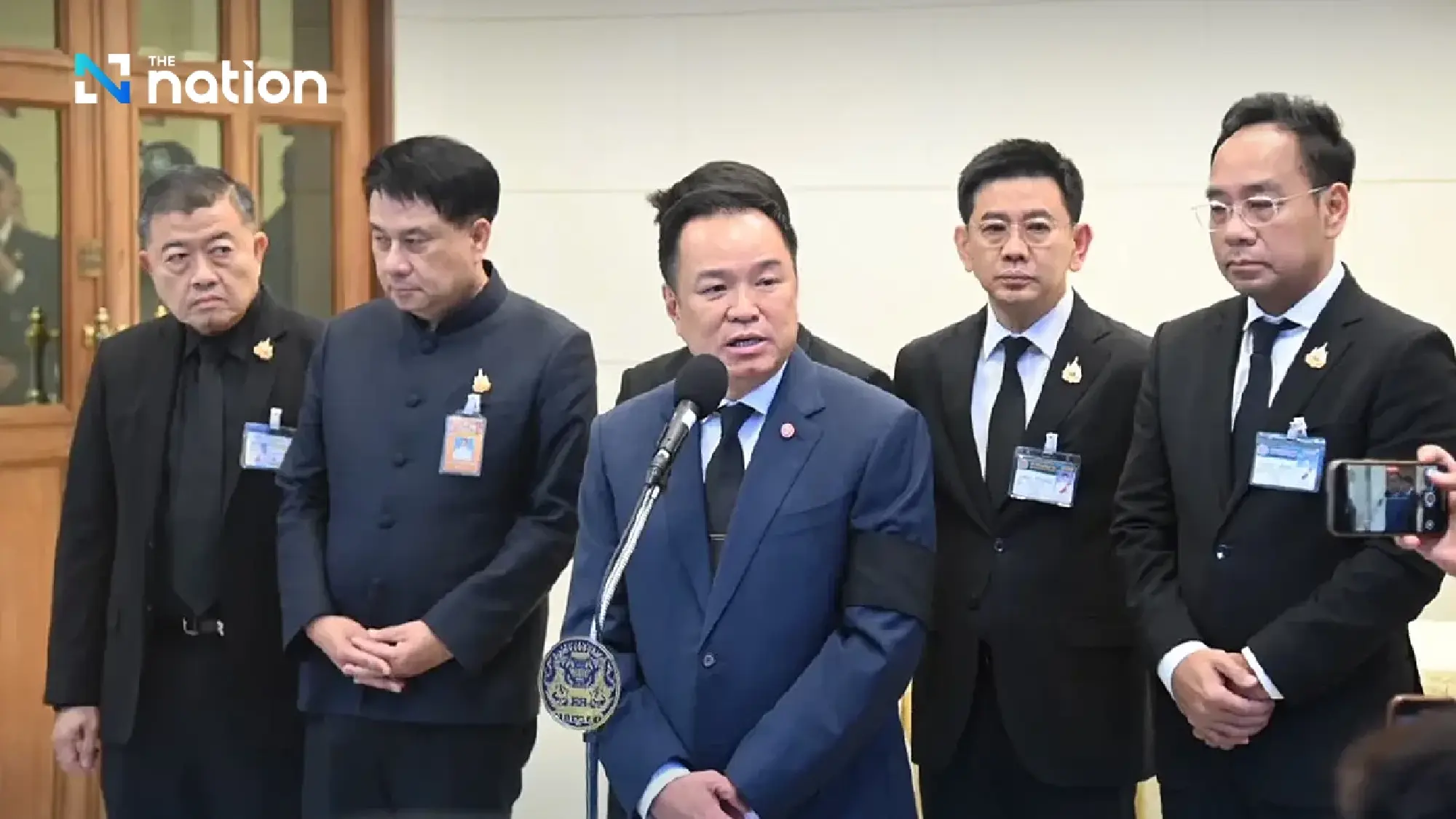Tags
Government absorbs 3 million tonnes of rice to stabilise prices

- The National Rice Policy and Management Committee has approved a “Paddy Absorption Project” to manage a surplus of 3 million tonnes from the 2025/2026 main crop.
- This project aims to stabilize prices by absorbing market supply and processing the paddy into packaged rice for sale to government agencies, such as the Department of Corrections and military units.
- A complementary “Paddy sales postponement loan programme” also targets 3 million tonnes, providing financial incentives for farmers to store their paddy for 1 to 5 months instead of selling immediately.
- The stated goals of these measures are to manage rice prices at an appropriate level, create market stability, and improve the quality of life for rice farmers.
Prime Minister Anutin Charnvirakul chaired the first meeting of the National Rice Policy and Management Committee (NRPMC) for the 2025 fiscal year (1/2025), with Deputy Prime Minister Ekniti Nitithanprapas serving as Vice-Chairman.
Also in attendance were the Minister of Commerce, the Deputy Minister of Agriculture and Cooperatives, representatives from relevant government agencies, the private sector, the President of the Thai Rice Exporters Association, the Thai Rice Millers Association, and farmer representatives, including the President of the Thai Farmers and Agriculturalists Association.
The meeting was held in the Phakdee Bordin Building, Government House, on November 18, 2025.
Following the meeting, Prime Minister Anutin revealed that while the global rice market faces high volatility this year, it presents significant opportunities for Thailand.
He disclosed that during the recent official visit of His Majesty the King and Her Majesty the Queen to the People’s Republic of China, President Xi Jinping informed His Majesty that China would purchase 500,000 tonnes of Thai rice.
This is seen as a positive signal for Thai rice prices and a “historic purchase order” coinciding with the celebration of the 50th anniversary of China-Thailand diplomatic relations.
Furthermore, Thailand agreed to sell 100,000 tonnes of rice and food in advance to Singapore.
This reinforces confidence in Thai rice and underscores the necessity of implementing policies to improve the quality of life for rice farmers, alongside seriously maintaining the standards of Thai rice products.
The Prime Minister stated that today’s NRPMC meeting focused on three core principles:
- Managing rice prices to remain at an appropriate level.
- Boosting the competitiveness of Thai rice in terms of quality, standards, and logistics.
- Creating stability in both the domestic and international markets simultaneously.

Wittayakorn Maneenetr, Director-General of the Department of Internal Trade, reported on the committee’s resolutions:
The meeting resolved to revise the guidelines for the “Paddy sales postponement loan programme for the main 2025/2026 crop. “. This targets 3 million tonnes of paddy, allowing farmers to store their rice in barns for 1 to 5 months. The loan prices for white rice, Pathumthani rice, and sticky rice will be reviewed to align with current market prices. Farmers with their own storage barns will receive a storage fee of THB1,500 per tonne.
The committee approved in principle the implementation of measures under the concept of “Thai Rice Towards the Future Economy” (New Rice Economy).


Short-Term Measure: This focuses on managing the surplus of white rice through the “Paddy Absorption Project for the 2025/2026 Main Crop” with a target of 3 million tonnes of paddy and a disbursement budget of THB1.68 billion. The goal is to absorb market supply and release it appropriately according to market conditions. Plans are in place to process the paddy into packaged rice for sale to agencies with actual demand, such as the Ministry of Justice (Department of Corrections), military units, and other government agencies.
Long-Term Measure: The committee approved long-term measures to restructure production, specifically by studying the adjustment of some out-of-season rice cultivation areas to better suit local conditions and market demand. A target of 160,000 hectares has been set, and careful consideration by relevant agencies is mandated before implementation.
Farmers will be promoted to improve quality by shifting towards the production of high-quality or premium rice to increase value, secure market support, and raise consumer awareness of the distinctiveness of Thai rice (e.g., Jasmine rice, Geographical Indication (GI) rice, and other unique varieties).
The target is 200 farmer groups with a disbursement budget of THB120 million.
Developing rice seeds based on market demand. The Department of Rice is tasked with further studying suitable high-quality, diverse rice varieties for the Central Region to replace hard-textured rice.
The Department of Internal Trade will continue the “Paddy Market Fair” initiative at no less than 30 locations covering over 40 provinces. This opens a space for millers and entrepreneurs to purchase rice from farmers at prices higher than the market rate, increasing sales channels and driving local prices up according to real demand mechanisms.
Wittayakorn concluded that the price outlook for this year shows positive signals from both domestic management measures and intensified export efforts.
The President of the Thai Rice Exporters Association, Pol Lt Charoen Laothamatas, reported that from the original export target of 7.5 million tonnes, Thailand is now expected to export between 8 and 9 million tonnes, a factor that supports the potential for a continuous improvement in domestic rice prices.
Global/Thai Rice Situation (2025/2026): Global prices are anticipated to face pressure from higher-than-expected Indian rice stocks, the suspension of rice imports by the Philippines, and the deceleration of imports by Indonesia until 2026. However, positive factors supporting prices include natural disaster impacts on Vietnamese rice production and sustained demand for Jasmine rice from international markets.
Current Prices (as of November 17, 2025): Rice prices in many areas have increased, a good sign for farmers. Specifically, Jasmine rice is priced at THB14,300 – 15,800 per tonne, and white rice is at THB6,100 – 6,800 per tonne, with other varieties also starting to show price increases.
https://www.nationthailand.com/blogs/news/policy/40058444Published Date: November 19, 2025






